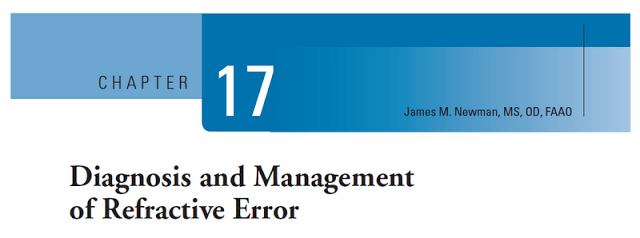MainosMemos contains the latest research and information about eye and vision care of children, developmental disabilities, Traumatic/Acquired Brain Injury and other topics of interest to me (and hopefully you!).
Saturday, April 21, 2012
Facial Features Of Children With Down Syndrome Lead To Implicit Stereotyping
.....Photographs of children with Down syndrome elicit less positive
attitudes than photographs of typically developing children do, reports
new research published in the open access journal PLoS ONE.
Friday, April 20, 2012
The Mystery Of Human Consciousness
The Mystery Of Human Consciousness
Awakening from anesthesia is often associated with an initial phase of delirious struggle before the full restoration of awareness and orientation to one's surroundings. Scientists now know why this may occur: primitive consciousness emerges first. Using brain imaging techniques in healthy volunteers, a team of scientists led by Adjunct Professor Harry Scheinin, M.D. from the University of Turku, Turku, Finland in collaboration with investigators from the University of California, Irvine, USA, have now imaged the process of returning consciousness after general anesthesia. The emergence of consciousness was found to be associated with activations of deep, primitive brain structures rather than the evolutionary younger neocortex. ....
Thursday, April 19, 2012
ackling Dyslexia Before Kids Learn To Read
Tackling Dyslexia Before Kids Learn To Read
....For children with dyslexia, the trouble begins even before they start reading and for reasons that don't necessarily reflect other language skills. That's according to a report published online in Current Biology, a Cell Press publication, that for the first time reveals a causal connection between early problems with visual attention and a later diagnosis of dyslexia."Visual attention deficits are surprisingly way more predictive of future reading disorders than are language abilities at the prereading stage," said Andrea Facoetti of the University of Padua in Italy.....
The Patient with Special Needs: Coming Soon
Special Needs Patients....the research clearly shows a much higher incidence of refractive error in children and adults with special needs....read all about it in Taub M, Bartuccio M, Maino D. Visual Diagnosis and Care of the Patient with Special Needs when it is published by Lippincott this spring. DM
Wednesday, April 18, 2012
Tuesday, April 17, 2012
Children With Autism Suffer More Severe Symptoms When Born Either Preterm Or Post-term
Children With Autism Suffer More Severe Symptoms When Born Either Preterm Or Post-term
......For children with autism, being born several weeks early or several weeks late tends to increase the severity of their symptoms, according to new research out of Michigan State University. .....
American Conference on Pediatric Cerebral Visual Impairment: The Article
This is the first (hopefully of several) potential articles coming out of the this conference. All presenters will stay on Saturday to begin writing up the proceedings of this conference. DM
Pediatric Cerebral Visual Impairment:: Childrens Hospital Omaha, NE
View more documents from Dominick Maino
My Presentation at the American Conference on Pediatric Cerebral Visual Impairment
On Friday, April 20th, I will give this presentation as part of an expert panel on Pediatric Cerebral Visual Impairment during the American Conference on Pediatric Cerebral Visual Impairment at the Childrens Hospital in Omah, NE. DM
American Conference on Pediatric Cerebral Visual Impairment
View more presentations from Dominick Maino.
American Conference on Pediatric Cerebral Visual Impairment: The Program
American Conference on Pediatric Cerebral Visual Impairment
Children's Hospital, Omaha NE
April 20th, 2012
7:45-8:00 a.m. OPENING REMARKS
• Welcome & Introductions of Expert Panel
8:00-8:45 a.m. Session One: Defining Pediatric CVI
Speaker order:
1. Mark Borchert, MD
2. Jacy VerMaas-Lee, MA, OTR/L
3. Dominick Maino, OD, MEd, FAAO, FCOVD-A
4. Christine Roman Lantzy, Ph D
8:45-9:30 a.m. Session One: Audience Questions & Discussion
Moderator—Dr. Legge
9:30-9:45 a.m. BREAK
• Refreshments are available in the foyer
• Next session starts at 9:45 a.m.
9:45-10:30 a.m. Session Two: Determining Visual Function in Children with P-CVI
Speaker order:
1. Dr. Maino
2. Dr. Lantzy
3. Prof. VerMaas-Lee
4. Dr. Borchert
10:30-11:15 a.m. Session Two: Audience Questions & Discussion
Moderator—Dr. Legge
11:15-12:00 p.m. LUNCH
12:00-12:15 p.m. OPENING REMARKS FOR AFTERNOON SESSION
Dr. Legge and Sara Olsen
12:15-1:00 p.m. Session Three: Therapeutic Strategies for the Treatment of P-CVI
Speaker order:
1. Prof. VerMaas-Lee
2. Dr. Borchert
3. Dr. Lantzy
4. Dr. Maino
1:00-1:45 p.m. Session Three: Audience Questions & Discussion
Moderator—Dr. Legge
1:45-2:00 p.m. BREAK
2:00-2:45 p.m. Session Four: How do Environmental Factors, Medications and Non-Visual Handicaps Affect the Evaluation and Treatment of P-CVI?
Speaker order:
1. Dr. Lantzy
2. Dr. Maino
3. Dr. Borchert
4. Prof. VerMaas-Lee
2:45-3:30 p.m. Session Four: Audience Questions & Discussion
Moderator—Dr. Legge
3:30-4:15 p.m. Summary Discussion of Panelists and Audience
Moderator—Dr. Legge
• What can we agree on?
• What are the most pressing questions in P-CVI?
• What do vision teachers need most from the medical providers?
• Where do we go from here?
4:15-4:30 p.m. Closing Remarks—Dr. Legge and Sara Olsen
4:30-5:30 pm Reception
Children's Hospital, Omaha NE
April 20th, 2012
7:45-8:00 a.m. OPENING REMARKS
• Welcome & Introductions of Expert Panel
8:00-8:45 a.m. Session One: Defining Pediatric CVI
Speaker order:
1. Mark Borchert, MD
2. Jacy VerMaas-Lee, MA, OTR/L
3. Dominick Maino, OD, MEd, FAAO, FCOVD-A
4. Christine Roman Lantzy, Ph D
8:45-9:30 a.m. Session One: Audience Questions & Discussion
Moderator—Dr. Legge
9:30-9:45 a.m. BREAK
• Refreshments are available in the foyer
• Next session starts at 9:45 a.m.
9:45-10:30 a.m. Session Two: Determining Visual Function in Children with P-CVI
Speaker order:
1. Dr. Maino
2. Dr. Lantzy
3. Prof. VerMaas-Lee
4. Dr. Borchert
10:30-11:15 a.m. Session Two: Audience Questions & Discussion
Moderator—Dr. Legge
11:15-12:00 p.m. LUNCH
12:00-12:15 p.m. OPENING REMARKS FOR AFTERNOON SESSION
Dr. Legge and Sara Olsen
12:15-1:00 p.m. Session Three: Therapeutic Strategies for the Treatment of P-CVI
Speaker order:
1. Prof. VerMaas-Lee
2. Dr. Borchert
3. Dr. Lantzy
4. Dr. Maino
1:00-1:45 p.m. Session Three: Audience Questions & Discussion
Moderator—Dr. Legge
1:45-2:00 p.m. BREAK
2:00-2:45 p.m. Session Four: How do Environmental Factors, Medications and Non-Visual Handicaps Affect the Evaluation and Treatment of P-CVI?
Speaker order:
1. Dr. Lantzy
2. Dr. Maino
3. Dr. Borchert
4. Prof. VerMaas-Lee
2:45-3:30 p.m. Session Four: Audience Questions & Discussion
Moderator—Dr. Legge
3:30-4:15 p.m. Summary Discussion of Panelists and Audience
Moderator—Dr. Legge
• What can we agree on?
• What are the most pressing questions in P-CVI?
• What do vision teachers need most from the medical providers?
• Where do we go from here?
4:15-4:30 p.m. Closing Remarks—Dr. Legge and Sara Olsen
4:30-5:30 pm Reception
Monday, April 16, 2012
Doctors want to redefine autism; parents worried
Doctors want to redefine autism; parents worried
....One child doesn't talk, rocks rhythmically back and forth and stares at clothes spinning in the dryer. Another has no trouble talking but is obsessed with trains, methodically naming every station in his state.Autistic kids like these hate change, but a big one is looming.
For the first time in nearly two decades, experts want to rewrite the definition of autism. Some parents fear that if the definition is narrowed, their children may lose out on special therapies.......
Autism Risk, Older Fathers
....Researchers have turned up a new clue to the workings of a possible environmental factor in autism
spectrum disorders (ASDs): fathers were four times more likely than
mothers to transmit tiny, spontaneous mutations to their children with
the disorders. Moreover, the number of such transmitted genetic glitches
increased with paternal age. The discovery may help to explain earlier
evidence linking autism risk to older fathers......
Sunday, April 15, 2012
SUNY Student Changes a Life
SUNY Student Changes a Lifeby Dr. Rochelle Mozlin |
Yesterday
I was examining young patients in the Pediatric Service at SUNY's
University Eye Center, along with 3rd and 4th year students. One of our
patients was an 8 year old boy with complaints of blurred vision,
difficulty focusing, and words moving around the page when reading.
Although he was reading "on grade level," he was struggling to keep up
with his peers. Mom felt like he was always swimming upstream. Now in
3rd grade, it was becoming more difficult for him to maintain that
effort. This child never had an eye examination. He passed every
vision screening because his visual acuity was never worse than 20/40...... Read more by clicking above. DM
Maternal Obesity Associated With Higher Autism Risk
Maternal Obesity Associated With Higher Autism Risk
....Maternal metabolic conditions, including obesity and/or diabetes, are linked to a higher chance of giving birth to children with a neurodevelopmental disorder, including autism, researchers from the University of California, Davis, California, and Vanderbilt University, Nashville, Tennessee reported in the journal Pediatrics. The authors added that as obesity rates have been rising steadily, and appear to be continuing to grow, their findings raise "serious public health concerns.".....
Small-Screen Viewing Causes Vision Problems At Younger Ages
Small-Screen Viewing Causes Vision Problems At Younger Ages Radio Interview with ICO's Dr. Valerie Kattouf
As WBBM Newsradio’s Nancy Harty reports, all that texting, e-reading and other small screen viewing is apparently messing with our vision.....
Dr. Valerie Kattouf, chief of pediatric optometry at the Illinois Eye Institute, says more of her young patients need reading glasses.
“I see it in school-age kids. I see it in older school-age kids - the
teenagers - and I see it a lot in young adults of working age, you
know, 20s and 30s,” Kattouf said.
on.....
As WBBM Newsradio’s Nancy Harty reports, all that texting, e-reading and other small screen viewing is apparently messing with our vision.....
Dr. Valerie Kattouf, chief of pediatric optometry at the Illinois Eye Institute, says more of her young patients need reading glasses.
on.....
Subscribe to:
Posts (Atom)

